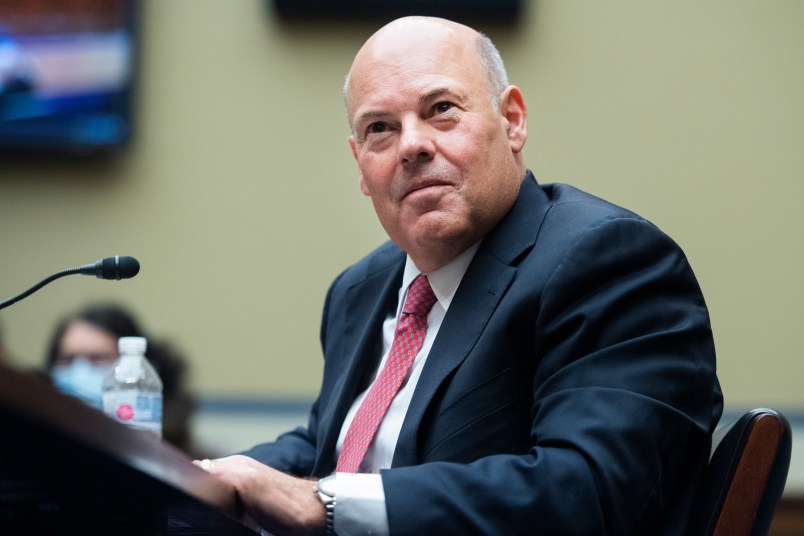Cost-cutting changes at the U.S. Postal Service championed by the new Postmaster General Louis DeJoy this year created “significant negative service impacts across the country,” an investigation from the Postal Service’s inspector general concluded this week.
A report on the investigation found that a slew of changes spearheaded and accelerated after DeJoy became Postmaster General over the summer were harmful in their own right — but also, that poor documentation, guidance and analysis of the changes “compounded” the problem.
DeJoy’s near single-minded focus on cutting costs and his close ties to the Republican establishment as a GOP megadonor — not to mention President Donald Trump’s own vilification of mail-in voting — have brought accusations that DeJoy is seeking to undermine the Postal Service, which he denied in a heated pair of congressional hearings in August.
The watchdog office conducted the investigation after a request of multiple members of Congress in August. Since then, federal judges have stepped in and ordered DeJoy to halt his more extreme changes to the USPS, including DeJoy’s order to limit overtime and cut so-called “late trips” that postal workers use to deliver mail on-time rather than waiting an extra day — or longer.
That policy change and dozens of others, according to the report, were developed to achieve an estimated 64 million “workhour savings.” But those changes, called “Do It Now FY Strategies,” had a substantial impact on mail delivery, the report found, and the COVID-19 crisis only exacerbated problems by impacting employee availability.
In addition to DeJoy’s efforts to limit work hours, the report also found that under DeJoy’s leadership, USPS also accelerated the removal of mail processing machines: Compared the past five fiscal years, when 375 flat processing machines were removed on average annually, 437 machines were removed over just three months this year, from June through August.
The mail delays speak for themselves: In July alone, per the report, on-time delivery of first-class mail dropped from 90.1% to 79.7%. As of early September, the report said, that number was back up to 86.8% — still nearly 10 points shy of USPS’ 96% on-time delivery target.
The inspector general’s report added to another, from late August, that rang alarm bells about a decrease in on-time delivery of election and political mail (meaning, both absentee ballots and political advertising). But the report noted steps that the Postal Service has taken to ensure the delivery of ballots.
“According to Postal Service officials, the service impacts caused by the operational changes were temporary and will not impact election mail for the upcoming 2020 election,” the report said. “ The Postal Service has established processes for handling election mail and efforts have been ongoing to train and prepare their employees on the Election Mail policies and procedures.”



